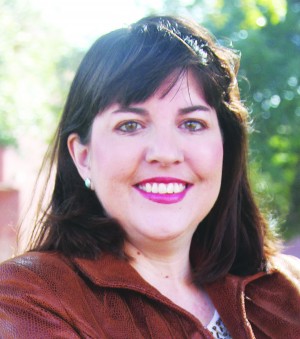
By Sierra Baumbach
Staff Writer
For many in the public relations field, protecting the public’s interest has caused them to raise ethical questions.
A study recently published by Dr. Marlene Neill, lecturer in the journalism, public relations and new media department, discusses the trials faced by public relations professionals when they acted as the “organizational conscience” inside of a company.
“The study focuses on the how and why public relations professionals raise ethical concerns,” Neill said. “It explores their motivations and what techniques they use to raise their concerns to senior managers.”
The study, “PR Professionals as Organizational Conscience,” evaluated 30 senior public relations professionals, many of them having served as advisers and counsel in organizations including corporations, nonprofit organizations, government agencies and independent public relations agencies.
“We talked to 10 practitioners from 10 states in the U.S. and five practitioners in Australia as well,” Neill said. “I took advantage of travel opportunities and attended a conference in New York and also attended the Southwest District conference in Oklahoma City.
“My co-author took advantage of her trip to Australia and interviewed professionals while she was there,” she said.
Participants in the study were required to have at least 10 years of experience, with all but three informants having served as the chief public relations officers in their organizations for at least two years.
According to the study, informants did not conceive of their roles as chief public relations officer as merely communication.
Instead, they viewed their roles as “consultative” and “problem solving.”
“While you would think that public relations practitioners would focus on communication issues, the types of issues they discussed covered a broad spectrum of dilemmas,” Neill said. “They had faced dilemmas including being asked to fire someone without cause, a workplace affair, they sort of addressed issues beyond just ‘what’s the right message?’ Their counsel extended beyond communication issues.”
The most consistent finding, according to the study, was that informants who had played the role of organizational conscience expressed a dual loyalty to their employers on one hand and to the public interest on the other.
“The reason we refer to PR professionals as the ‘organizational conscience’ is because a lot of scholars and industry leaders have said that PR should act as the conscience of an organization,” Neill said. “We said that it’s broader than that, because all organizations face ethical dilemmas. That’s why we use the term ‘organizational conscience,’ believing that it applies to all people who are willing to stand up, and raise their concerns if they see something that conflicts with their values or threatens the organization’s best interests.”
The study has grabbed the eye of numerous blogs, newspapers and people around the globe, inspiring tweets from Saudi Arabia, Europe and South America and appearing on blogs such as E! Science News, Phys.org, and PRNewser.
“I was attracted to the study because I know that people who work in PR resent the idea that they are just blank slates who repeat corporate mantras,” Patrick Coffee, editor of PRNewser, said. “Readers appreciate research that backs up their own opinions about the work they do. PR folks are more than that, and this study helps break down the stereotype and change the public’s view.”



